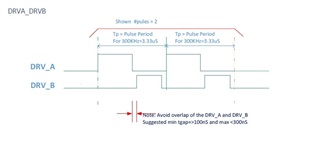How can I generate two complimentary signals using PWM with a period of 3.33us (300khz) with ability to control number of pulses to generate.
1: With current api PWM takes period is integer values of microseconds so I can set either 3us or 4us, but I need to set 3.33us
2: How do I control exact number of pulses generated by PWM
3: For my second signal is it possible to set delay so that first signal and the second signal does not overlap



